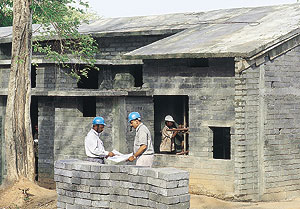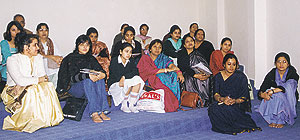| |
|
Waste Management -
recycle and reuse
|
All ITC Units consistently endeavour to
reduce generation of waste and maximise its recycling. Wastes are systematically
segregated as hazardous, bio-medical, nuclear, non-hazardous, biodegradable and
non-biodegradable, to be appropriately treated, recycled or disposed.
Nearly 44% of solid waste is currently
recycled, as compared to 17% four years ago. Non-biodegradable solid waste has been
reduced to 25% from 45% during this period. |
|
| |

|
ITC’s paperboard Unit
uses fly ash waste from the factory to make bricks for constructing houses and roads. |
| |
|
|
|
| |
|
|
|
Preserving the environment - inspiring Generation Next |
 |
| ITC believes that the most effective
insurance against the continuing degradation of the environment is to educate the next
generation on ecological preservation. Towards this end, ITC-Welcomgroup has created a
teaching module which enables school teachers to comprehend and effectively communicate
the unfolding environmental realities to their students. |
|
|
|
To date, ITC-Welcomgroup has
implemeneted this module in 366 schools across Karnataka, Delhi, Rajasthan and Chandigarh
in partnership with the State Governments and CII.
ITC-Welcomgroup has also developed a
57-point scorecard to eco-rate the schools under the programme. The Delhi Pollution
Control Board is partnering with ITC-Welcomgroup to popularise the eco-rating concept
among schools in Delhi. Nearly 300 schools have already responded.
|
|
|
|
|
|
|
PricewaterhouseCoopers'
review comments:
The EHS data contained in this feature has been extracted from ITC's comprehensive
EHS report 2003, which has been reviewed and verified by us.Sustainable Business Solutions
PricewaterhouseCoopers (P) Ltd. |
|
|
|